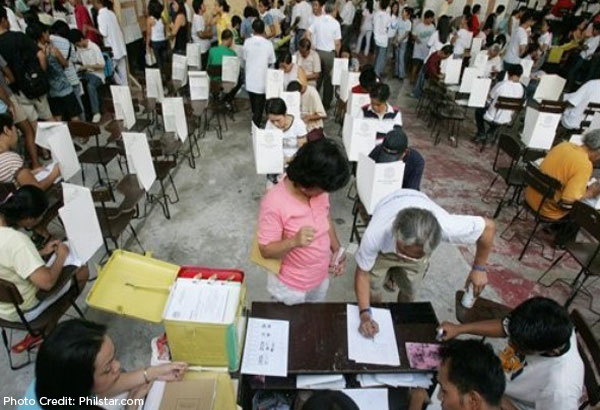2016’s Big Show
The spotlight is on the stage. The crowd is divided in colors. They chant, they cheer, and they jeer as their champion puts on a show. They’ve seen this before, but it doesn’t dull the excitement. Catchy lines, below the belt jabs, and the much anticipated signature moves still evoke enthusiastic applause from fans who have already chosen a side.
I happen to be one of the biggest wrestling fans that I know. Even when wrestling companies no longer hid the fact that their shows were choreographed and scripted, we fans still enjoyed the mix of athleticism, conflict, and storylines. We applauded the entire spectacle.
But the scene I described wasn’t of a wrestling match; they were acts that unfolded during our PiliPinas 2016 debates.
Propose a good policy measure and the venue remains silent, probably unimpressed. But throw a personal jab or ask a question that makes a candidate squirm and the audience erupts.
In that sense, what stood out at our debates weren’t the contents of what was said but the manner in which they were said. The delivery and the showmanship won the crowd, just like in wrestling.
I’m not the only one who has said this. A lot of people who watched the debates commented that it had a wrestling vibe, given the decorum of the crowd and the booing candidates had to speak over to say their piece.
It’s fun cheering for your champion and the debates were definitely high on entertainment value.
But it fell short on being a medium to get to know more about the candidates – their motivations, their reasons for running, what they offer to us, the Filipino people.
Much less so, the candidates had a difficult time sharing their plans in solving longstanding and complicated issues that have plagued our country for decades.
It was a struggle for candidates to express what they stand for, what they believe in, what they’re fighting for, and what they want to do for the country within the allotted time limits.
Candidates were challenged to cram an ocean into a jar, fitting solutions to complicated problems, like the Internet, agriculture, education, and the West Philippine Sea dispute into 60-second bits.
If you notice, most were only able to get to a very superficial layer and a lot of the answers would sound similar because it’s in the second and third levels of detail that usually reveal their knowledge and true stance on the issue.
As a voter, I wanted to get to that kernel of truth in each candidate and see if I could resonate with that person. I wanted to find out whether our candidates share the same hopes and dreams I have for my country.
But I have yet to find a debate format in these elections that enables this, rather than hinders it.
As campaigns came to a close, Filipinos were left to their own devices in sifting through the smoke and mirrors and getting to the core of each candidate, their platforms, and their policies before casting their one significant ballot.
Still, I am hopeful that smarts, ability, selfless intentions, and genuine love for the country has shone through, if only in glimpses, throughout the campaign season and that Filipino voters elected the leaders our country needs.
First Published on Manila Bulletin

Recent Comments